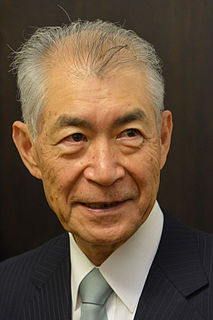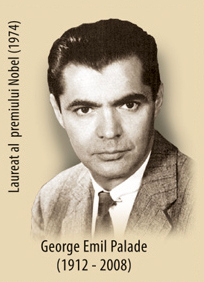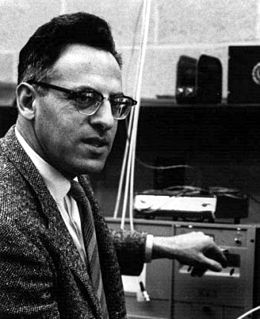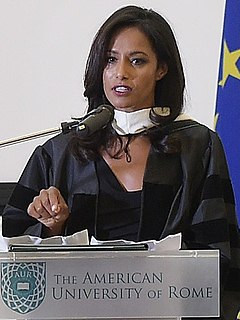A Quote by Tasuku Honjo
Of course I went to medical school strongly influenced by my father, I mean the family reason, and secondly I read the biography of Hideyo Noguchi who was the very interesting doctor, who went to the United States in his 20s and become professor in the Rockefeller Institute.
Related Quotes
In 1973, I left the Rockefeller University to join the Yale University Medical School. The main reason for the move was my belief that the time had come for fruitful interactions between the new discipline of Cell Biology and the traditional fields of interest of medical schools, namely Pathology and Clinical Medicine.
An old joke has an Oxford professor meeting an American former graduate student and asking him what he's working on these days. 'My thesis is on the survival of the class system in the United States.' 'Oh really, that's interesting: one didn't think there was a class system in the United States.' 'Nobody does. That's how it survives.
[If a book were] very innocent, and one which might be confided to the reason of any man; not likely to be much read if let alone, but if persecuted, it will be generally read. Every man in the United States will think it a duty to buy a copy, in vindication of his right to buy and to read what he pleases.
Mexico has many more kidnappings than the United States. The U.S. has very few kidnappings.The reason is, in the United States, we don't pay ransom. We turn it over to the FBI. They catch the person. And then, of course, we used to have the death penalty for it. Now it's life in prison. In Mexico, everybody pays. It's a business.
I was 16 when my father died, and I had a choice to come back and live in his house or I'd stay at the school. But I felt if my father wanted me to go to that school when I was 5, there must have been a reason - and I understood that reason when I was a teenager, because that school became the only place where I was safe.





































